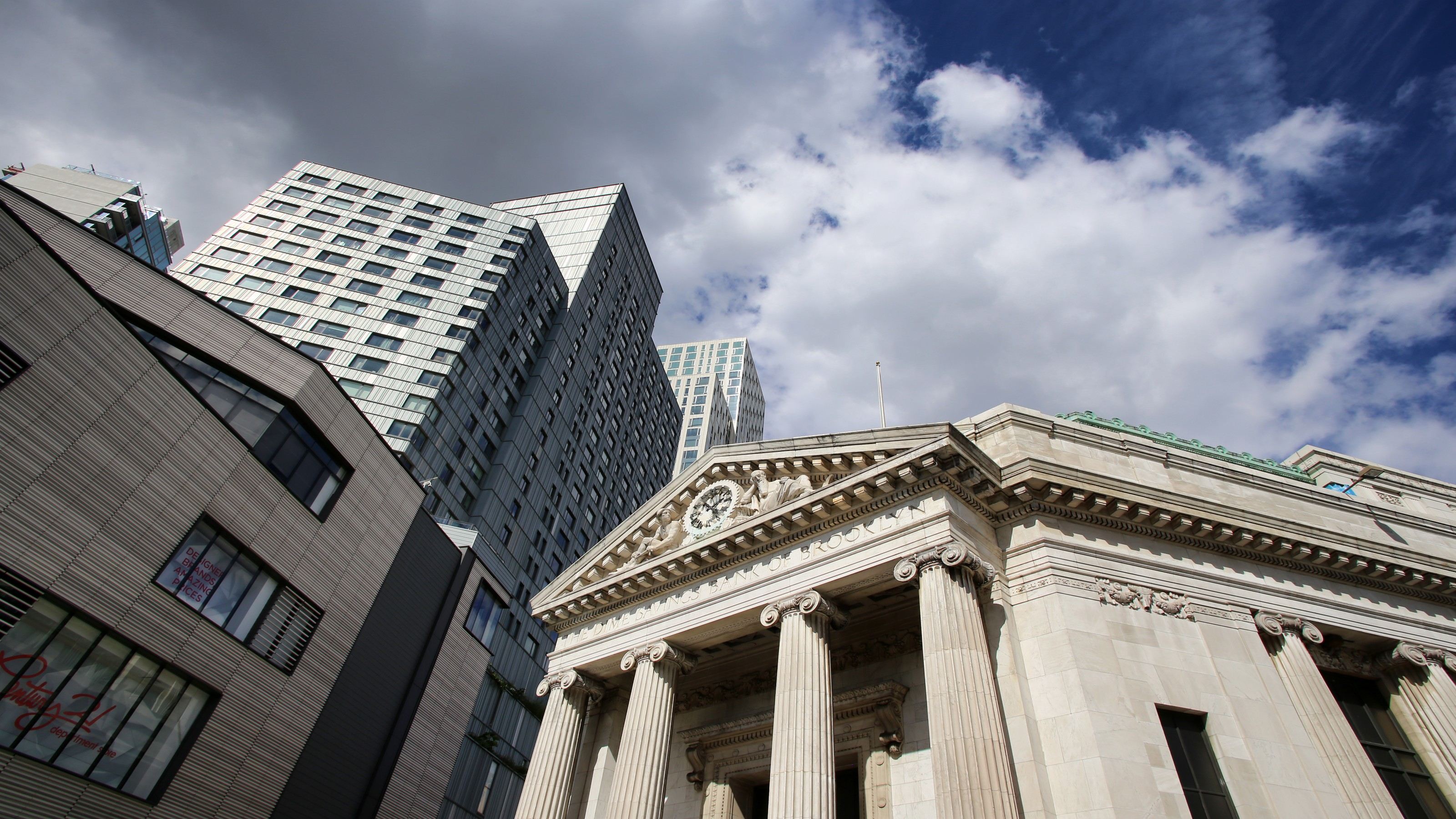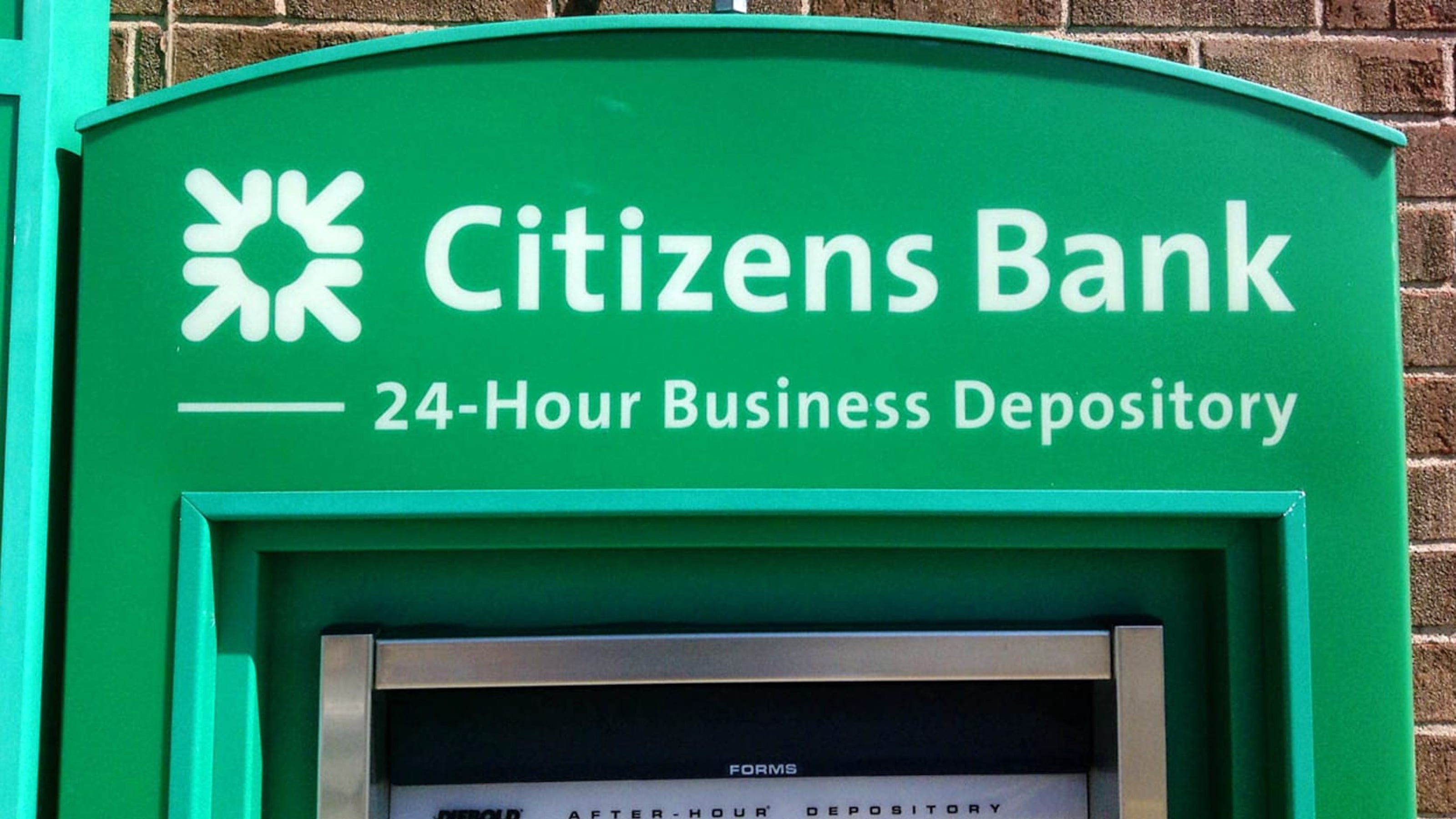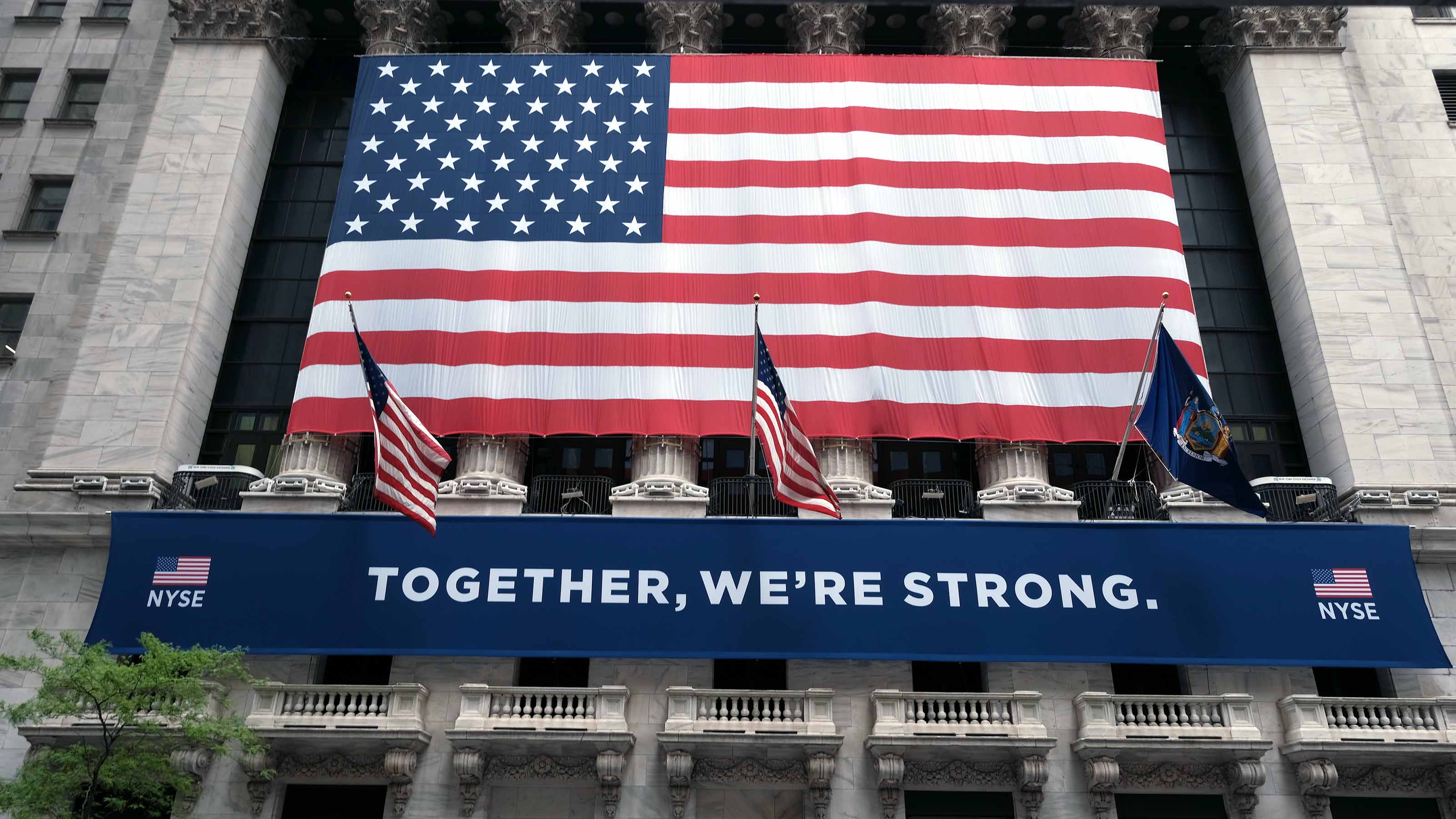5 Top-Rated Financial Stocks to Buy
A harsh year for financial stocks has created a few value opportunities. Here are five analyst picks from the beleaguered sector.


Profit and prosper with the best of Kiplinger's advice on investing, taxes, retirement, personal finance and much more. Delivered daily. Enter your email in the box and click Sign Me Up.
You are now subscribed
Your newsletter sign-up was successful
Want to add more newsletters?

Delivered daily
Kiplinger Today
Profit and prosper with the best of Kiplinger's advice on investing, taxes, retirement, personal finance and much more delivered daily. Smart money moves start here.

Sent five days a week
Kiplinger A Step Ahead
Get practical help to make better financial decisions in your everyday life, from spending to savings on top deals.

Delivered daily
Kiplinger Closing Bell
Get today's biggest financial and investing headlines delivered to your inbox every day the U.S. stock market is open.

Sent twice a week
Kiplinger Adviser Intel
Financial pros across the country share best practices and fresh tactics to preserve and grow your wealth.

Delivered weekly
Kiplinger Tax Tips
Trim your federal and state tax bills with practical tax-planning and tax-cutting strategies.

Sent twice a week
Kiplinger Retirement Tips
Your twice-a-week guide to planning and enjoying a financially secure and richly rewarding retirement

Sent bimonthly.
Kiplinger Adviser Angle
Insights for advisers, wealth managers and other financial professionals.

Sent twice a week
Kiplinger Investing Weekly
Your twice-a-week roundup of promising stocks, funds, companies and industries you should consider, ones you should avoid, and why.

Sent weekly for six weeks
Kiplinger Invest for Retirement
Your step-by-step six-part series on how to invest for retirement, from devising a successful strategy to exactly which investments to choose.
2020 has been a brutal year for financial stocks. A drop in interest rates, higher pandemic-related insurance claims and the steep economic downturn have crushed the S&P 500 financials sector by about 25% so far this year.
Of course, anytime there is carnage, there is also opportunity to find bargains. And analysts recently have targeted a few financial stocks to buy for their apparent value.
Most recently, banks were pummeled in the wake of the Federal Reserve placing limits on dividends and share buybacks at the nation's biggest banks. However, that doesn't mean all lenders are down for the count. Similarly, credit-fueled consumer spending remains lively. And it's not like every property & casualty insurer is crying in its beer.
To get a sense of where the bargains might lie, we surveyed the S&P 500 for financial-sector stocks with some of the strongest analyst ratings on the Street, according to S&P Capital IQ.
Here's how it works: S&P Capital IQ surveys analysts' stock calls and scores them on a five-point scale, where 1.0 equals a Strong Buy and 5.0 is a Strong Sell. Any score lower than 2.5 means that analysts, on average, rate the stock as a Buy. Scores of 1.5 and below mean the stock is a Strong Buy. Either way, the closer a stock's score gets to 1.0, the more bullish analysts are about its prospects.
After sorting through the S&P 500, we found stocks ranging from an asset manager to a regional bank to a credit-card issuer. Read on as we look at five of the top-rated financial stocks to buy in these turbulent times.
Share prices, dividend yields, price targets, analysts' ratings and other data are courtesy of S&P Capital IQ as of June 26, unless otherwise noted. Stocks are listed by analysts' average recommendation from worst to best.

Ameriprise Financial
- Market value: $18.0 billion
- Dividend yield: 2.8%
- Analysts' average recommendation: 2.08 (Buy)
Investors worried about Ameriprise Financial's (AMP, $146.94) dividend breathed a sigh of relief this spring. The firm, which provides financial planning, asset management and insurance, hiked its quarterly payout in May by 7%, to $1.04 a share from 97 cents.
Credit Suisse's Andrew Kilgerman rates AMP at Outperform (equivalent of Buy), citing the company's success vs. rivals in the financial services industry since it was spun off from American Express (AXP) in 2005. Kilgerman – who raised his price target on Ameriprise's shares from $165 to $200 – notes that the market fails to fully appreciate AMP's cost savings among its various operations.
Ameriprise faces stiff headwinds these days, to be sure. But analysts think it has the wherewithal to come out ahead once they subside. For example, the drop in interest rates hurts brokerage cash fees, which are a key driver of wealth management profits, says William Blair Equity Research. Analysts further caution that annuities should be affected as well, while asset management continues to see net outflows and fee pressures.
"With that said, cash flows should be strong enough to maintain large share repurchases," William Blair writes. "We continue to rate Ameriprise at Outperform given an attractive valuation and high capital return."
Of the 13 analysts covering AMP tracked by S&P Capital IQ, nine put it among financial stocks to buy at either a Strong Buy or Buy rating. Meanwhile, four call it a Hold; no one has a Sell call on it at present.

Synchrony Financial
- Market value: $12.5 billion
- Dividend yield: 4.1%
- Analysts' average recommendation: 1.95 (Buy)
Synchrony Financial (SYF, $21.39) is another financial stock not getting its due from the market, analysts say.
Synchrony issues private-label credit cards for some of the biggest retailers in the U.S. That includes e-commerce giant Amazon.com (AMZN) and Lowe's (LOW), the nation's second-largest home improvement chain.
Shares came under pressure amid fears that the coronavirus pandemic would close stores and cut consumer spending. Although that turned out to be a well-founded fear, Stephens' Vincent Caintic, who rates the stock at Overweight (equivalent of Buy), says the market is underestimating the sales rebound at SYF's retail customers.
Major digital platforms such as Amazon and PayPal (PYPL) account for nearly a third of the company's card interest and fees, Caintic says, and growth in that segment remains pretty healthy. Mass merchants such as Lowe's and Walmart's (WMT) Sam's Club are likewise doing well.
Credit Suisse says the company's new partnership with Verizon (VZ) is a significant tailwind, too.
"SYF management has been very excited and committed to this launch and this portfolio," writes Credit Suisse, which rates the stock at Outperform. "We believe this card offers attractive rewards for the value to gain traction among 150 million Verizon customers in the U.S."

Citizens Financial
- Market value: $9.9 billion
- Dividend yield: 6.7%
- Analysts' average recommendation: 1.86 (Buy)
Citizens Financial (CFG, $23.16) took a pounding June 26 – just like most bank stocks – after the Federal Reserve placed limits on dividends and share buybacks at the nation's biggest banks. As a large regional lender, CFG dodges that bullet, but concerns remain about the dividend.
Keefe, Bruyette & Woods analysts believe the recent stress tests will not impact common dividend payouts for the large regional banks in the third quarter, but there's a heightened risk of cuts in the fourth quarter. So of all the financial stocks on this list, CFG is the one to handle with the most care over the coming months.
Nonetheless, analysts as a group remain bullish on Citizens Financial. UBS raised its rating to Buy in May, citing CFG's "more diversified loan book, self-help opportunities, and considerable valuation discount."
Piper Sandler rates CFG at Overweight, noting that most large regional banks "appear to be witnessing some return to normalcy in terms of customer spending activity as compared to spring lows."
Banks also are benefiting from the cost savings associated with an increase in digital banking. "We expect in coming quarters to hear more details regarding banks' ability to close branches at a faster clip to save costs," Piper adds.
Eight analysts call CFG a Strong Buy, eight say Buy and five rate it at Hold. Their average price target of $29.31 gives the stock implied upside of more than 26% in the next 12 months or so.

Hartford Financial
- Market value: $13.4 billion
- Dividend yield: 3.5%
- Analysts' average recommendation: 1.82 (Buy)
Shares in Hartford Financial (HIG, $37.44) have been slammed in 2020, but analysts say the pain has been way overdone.
"We think HIG's valuation reflects that investors are overly concerned with pandemic-related insurance exposures," writes Piper Sandler, which rates the investment and insurance company's shares at Overweight.
"The Hartford in recent years has been one of the most profitable insurers in our coverage universe," Piper's analysts add, noting that HIG has limited exposure to business interruption claims from the pandemic.
Piper is bullish about the company's dividend, too. "The Hartford has paid a dividend for many years and its current payout is less than 30% of our projection of 2020 operating earnings," Piper analysts say.
This news should also help investors sleep better at night: AM Best recently affirmed its A+ (Superior) financial strength rating on HIG.
"The ratings of the Hartford Insurance Group reflect its balance sheet strength, which AM Best categorizes as strongest, as well as its adequate operating performance, favorable business profile and appropriate enterprise risk management," AM Best says.
Of the 17 analysts covering the stock tracked by S&P Capital IQ, eight rate it at Strong Buy, four say Buy and five call it a Hold. They expect HIG to generate average annual profit growth or more than 5% over the next three to five years.

Intercontinental Exchange
- Market value: $49.5 billion
- Dividend yield: 1.3%
- Analysts' average recommendation: 1.52 (Buy)
Market volatility and a huge influx of first-time traders spells good news for exchange companies such as Intercontinental Exchange (ICE, $90.40), whose holdings include the New York Stock Exchange and its various equity and bond markets.
Deutsche Bank has ICE at the top of its list of financial stocks to buy, thanks to its "recurring revenue-based" model. It's also "benefiting from sustained strength in retail trading activity in cash equities and equity options," DB analysts write.
Citigroup echoes those sentiments, noting that even after the market turmoil settles down, ICE's fundamentals remain strong. Citi analysts raised their rating on ICE in May to Buy from Neutral, citing the "strength of its full-service ecosystem" and strong balance sheet.
ICE and its rivals should also get a boost from initial public offerings once the market returns to some semblance of normalcy, as there should be ample pent-up demand.
Twelve analysts tracked by S&P Capital IQ rate the stock at Strong Buy and seven say it's a buy. Two analysts call it a Hold. They forecast ICE to deliver average annual earnings growth of more than 10% over the next three to five years, while their average price target of $103.43 gives the stock implied upside of about 14% in the next year or so.
Profit and prosper with the best of Kiplinger's advice on investing, taxes, retirement, personal finance and much more. Delivered daily. Enter your email in the box and click Sign Me Up.

Dan Burrows is Kiplinger's senior investing writer, having joined the publication full time in 2016.
A long-time financial journalist, Dan is a veteran of MarketWatch, CBS MoneyWatch, SmartMoney, InvestorPlace, DailyFinance and other tier 1 national publications. He has written for The Wall Street Journal, Bloomberg and Consumer Reports and his stories have appeared in the New York Daily News, the San Jose Mercury News and Investor's Business Daily, among many other outlets. As a senior writer at AOL's DailyFinance, Dan reported market news from the floor of the New York Stock Exchange.
Once upon a time – before his days as a financial reporter and assistant financial editor at legendary fashion trade paper Women's Wear Daily – Dan worked for Spy magazine, scribbled away at Time Inc. and contributed to Maxim magazine back when lad mags were a thing. He's also written for Esquire magazine's Dubious Achievements Awards.
In his current role at Kiplinger, Dan writes about markets and macroeconomics.
Dan holds a bachelor's degree from Oberlin College and a master's degree from Columbia University.
Disclosure: Dan does not trade individual stocks or securities. He is eternally long the U.S equity market, primarily through tax-advantaged accounts.
-
 The Cost of Leaving Your Money in a Low-Rate Account
The Cost of Leaving Your Money in a Low-Rate AccountWhy parking your cash in low-yield accounts could be costing you, and smarter alternatives that preserve liquidity while boosting returns.
-
 I want to sell our beach house to retire now, but my wife wants to keep it.
I want to sell our beach house to retire now, but my wife wants to keep it.I want to sell the $610K vacation home and retire now, but my wife envisions a beach retirement in 8 years. We asked financial advisers to weigh in.
-
 How to Add a Pet Trust to Your Estate Plan
How to Add a Pet Trust to Your Estate PlanAdding a pet trust to your estate plan can ensure your pets are properly looked after when you're no longer able to care for them. This is how to go about it.
-
 Nasdaq Slides 1.4% on Big Tech Questions: Stock Market Today
Nasdaq Slides 1.4% on Big Tech Questions: Stock Market TodayPalantir Technologies proves at least one publicly traded company can spend a lot of money on AI and make a lot of money on AI.
-
 Fed Vibes Lift Stocks, Dow Up 515 Points: Stock Market Today
Fed Vibes Lift Stocks, Dow Up 515 Points: Stock Market TodayIncoming economic data, including the January jobs report, has been delayed again by another federal government shutdown.
-
 Stocks Close Down as Gold, Silver Spiral: Stock Market Today
Stocks Close Down as Gold, Silver Spiral: Stock Market TodayA "long-overdue correction" temporarily halted a massive rally in gold and silver, while the Dow took a hit from negative reactions to blue-chip earnings.
-
 The New Fed Chair Was Announced: What You Need to Know
The New Fed Chair Was Announced: What You Need to KnowPresident Donald Trump announced Kevin Warsh as his selection for the next chair of the Federal Reserve, who will replace Jerome Powell.
-
 Nasdaq Drops 172 Points on MSFT AI Spend: Stock Market Today
Nasdaq Drops 172 Points on MSFT AI Spend: Stock Market TodayMicrosoft, Meta Platforms and a mid-cap energy stock have a lot to say about the state of the AI revolution today.
-
 S&P 500 Tops 7,000, Fed Pauses Rate Cuts: Stock Market Today
S&P 500 Tops 7,000, Fed Pauses Rate Cuts: Stock Market TodayInvestors, traders and speculators will probably have to wait until after Jerome Powell steps down for the next Fed rate cut.
-
 S&P 500 Hits New High Before Big Tech Earnings, Fed: Stock Market Today
S&P 500 Hits New High Before Big Tech Earnings, Fed: Stock Market TodayThe tech-heavy Nasdaq also shone in Tuesday's session, while UnitedHealth dragged on the blue-chip Dow Jones Industrial Average.
-
 Dow Rises 313 Points to Begin a Big Week: Stock Market Today
Dow Rises 313 Points to Begin a Big Week: Stock Market TodayThe S&P 500 is within 50 points of crossing 7,000 for the first time, and Papa Dow is lurking just below its own new all-time high.
